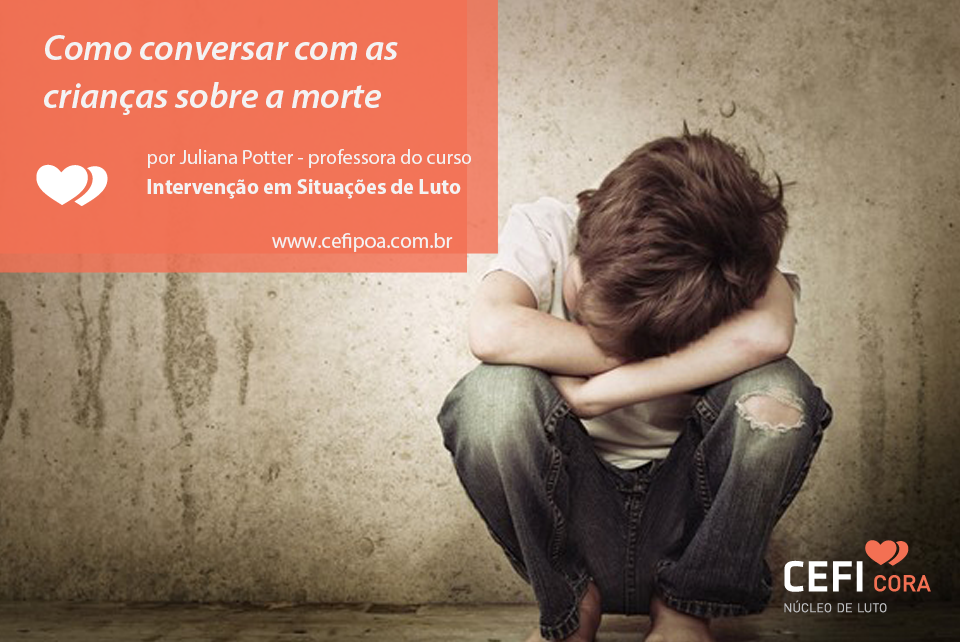How to talk to children about death?

Even today, talking about death with children is a non-consensual issue among child therapists, especially when it comes to the participation of children in funeral rituals. The way communication about the loss of a loved one happens also directly interferes with the way the child understands death and how he or she will experience his or her grief process.
Adults often hide information by believing that they are protecting the child and avoiding their suffering. However, this concealment ends up generating anxiety and sadness that can even put the child in doubt about the confidence and security they feel towards the adults around them. We need, instead of omitting, to adapt the way we communicate, always respecting their age and comprehension, which varies from child to child.
It is important to avoid metaphors such as: “turned a little star”, “was live in heaven ”, because the still concrete thinking can lead the child to believe that the person can return. Openly saying that the person is dead and never coming back, no matter how difficult, helps the child to accept the reality of the loss and to begin his or her process of mourning in a healthier way. The child understands the family moment and to feel belonging and respected, and can be welcomed by adults in the expression of their suffering. The way the child expresses his pain is directly related to the way the adults around him express themselves and receive their emotional demonstrations. So adults who find professionals who are able to provide adequate information can help children to undergo this painful and transformative process that is the loss of a loved one in order to avoid further problems throughout the child's cognitive and emotional development.
Psychologist Juliana Potter - teacher of the CEFI Mourning Intervention Course
Course Information: http://cefipoa.com.br/index.php/detalha-curso-cuiaba/41/course-of-specializacaoo-interventiono-in-situacoes-de-muto-

